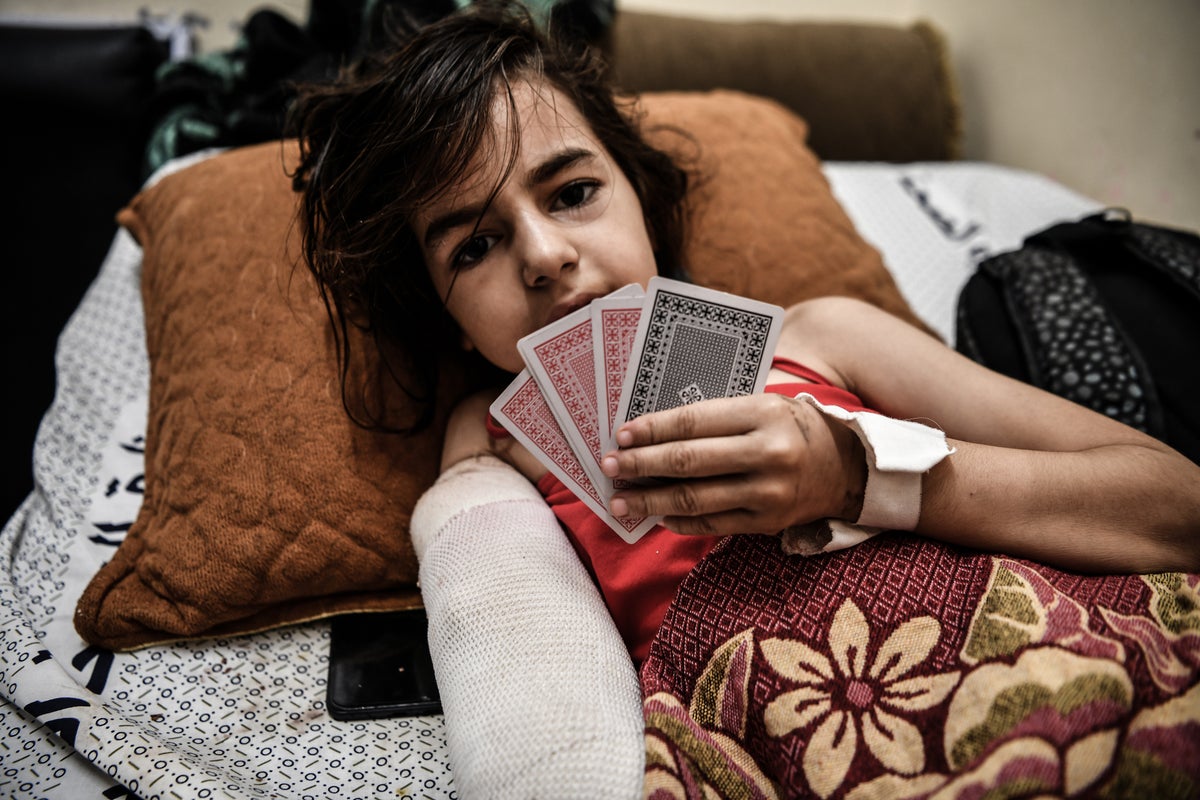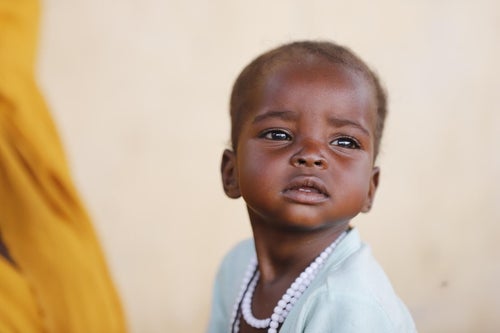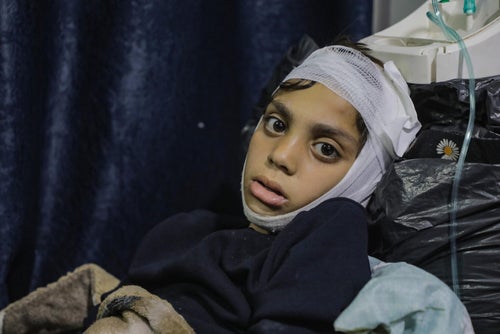Right now, millions of children continue to live in a world hostile to their rights. Something that is often missed in the 24-hour news cycle is the very human impact these crises are having on children and young people who are caught up in the middle of them. Growing up should be a time of hope, not horror. And this is the time of year when children should be getting ready for the holidays, playing, making new friends and creating new memories. Sadly, that is not the case for many children around the globe, including in the Gaza Strip, which UNICEF Global Spokesperson James Elder has called “the most dangerous place in the world to be a child”.
"In my twenty years with UNICEF, traveling from one humanitarian crisis to the next – from famines to floods and war zones to refugee camps – I’ve simply never seen such devastation and despair as is happening in Gaza."
Growing up should be a time of hope, not horror
At the start of this war, UNICEF said Gaza was a “graveyard for children and a living hell for everyone else”. The situation in Gaza has only gotten worse as the bombing and fighting have continued and the impacts are catastrophic for children and families.
Children make up roughly half of Gaza’s population of nearly 2.3 million people, and they are dying at an alarming rate – more than 5,000 have reportedly been killed and thousands more injured. The situation is deeply heartbreaking, and the number of children killed in this conflict alone has now exceeded the total number of children killed globally in all conflicts in 2022.
For many children and young people in Gaza, including 21-year-old Marwa, their hopes and dreams for the future have quite literally gone up in smoke. Marwa was set to start training as a surgeon at a local hospital when the conflict escalated, and she was forced to flee to a refugee camp. “Now life is very difficult,” she said. “No sleep, no food, no water, no electricity, no life. It’s survival... it’s not life.”
Nowhere is safe
Almost every child in the Gaza Strip has been exposed to deeply distressing events and trauma. Close to one million children have been forcibly displaced from their homes, leaving behind everything they know. Their homes have been destroyed and their families torn apart. Entire neighbourhoods where they used to live, play and go to school, have been reduced to rubble, and most children have experienced the grief of losing a friend or family member.
The intensity of the attacks, the massive number of child casualties, and the desperation and panic of the people on the move – people who already have nothing – is devastating. It is humanitarian disaster on top of humanitarian disaster.

Children in Gaza are in danger not only from attacks from the sky, but from disease on the ground, and death from hunger and thirst. Nowhere is safe.
They need more of everything, especially medicines, water, fuel, and food. UNICEF is doing all we can to deliver much-needed supplies to children and families in Gaza, but it is far from enough. The crisis in Gaza is an extraordinary emergency, as unlike other conflicts, little aid can get into the region due to security and logistics challenges.

Access to enough clean water is a matter of life and death, and children in Gaza have barely a drop to drink. Children and their families are being forced to use contaminated well water, increasing their risk of catching waterborne diseases.
Without sufficient clean water, food, and sanitation, malnutrition is soaring among Gaza’s children and diarrhoeal diseases are becoming deadly. Without an immediate humanitarian ceasefire, child deaths due to disease could surpass those killed in bombardments in Gaza.
"Our situation is pure misery. We are desperately looking for water and food. I'm overwhelmed. I don't know if I will make through this. Please tell the world."
Every single child, no matter who they are or where they live, deserves to be safe. Even wars have rules. No child anywhere should be cut off from essential services. No child should be held hostage or used by any means in armed conflict. Hospitals and schools must be protected from bombings.
The world is watching, helpless and devastated – we cannot act quickly enough. This must stop immediately. We need a humanitarian ceasefire and peace now.
A child is a child, no matter where they are
While the horrific war in Gaza continues to dominate headlines, there are many other ongoing crises happening around the world that are not getting the attention they deserve.
Whether it’s the 3.3 million children in need during the ongoing war in Ukraine, the 7.8 million children who don’t have access to clean water in Yemen after almost a decade of conflict, the 13.6 million children needing urgent humanitarian assistance in Sudan, the continued plight of the stateless Rohingya children and families in Myanmar and Bangladesh, or the political and climate crises continuing to face young people in Afghanistan, UNICEF believes every child in the world has the right to be protected, healthy and educated.
This is why UNICEF is there for every child, before, during and after emergencies – no matter what.
Children in Emergencies
UNICEF is providing urgent assistance to children. But we can’t do it alone. We need your help today.
*As this horrific conflict continues to escalate, we sometimes get asked what UNICEF is doing for children in Israel. A child is a child and UNICEF stands for the protection of all children regardless of borders or countries. In high-income countries like Israel, governments generally have adequate capacity and resources to respond to emergencies. In these countries, UNICEF programs are not required unless requested by the Government, which Israel has not requested.
Our work to protect and advocate for all children across Israel, Gaza and the West Bank will continue. Every single child deserves to be protected.
Related articles
Stay up-to-date on UNICEF's work in Australia and around the world
















